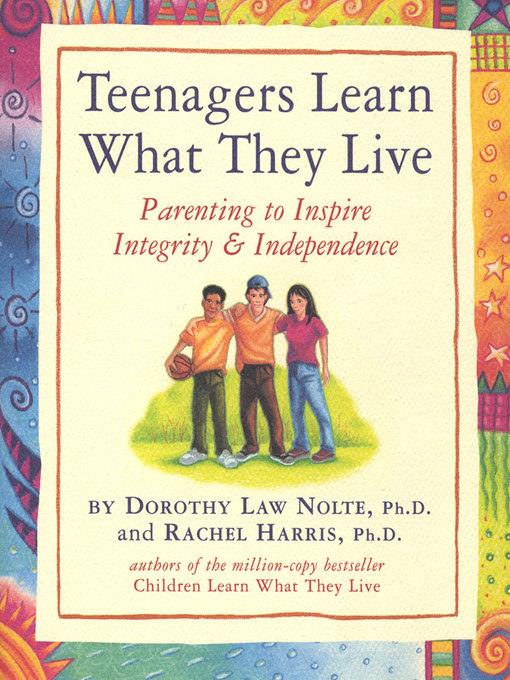
Teenagers Learn What They Live
Parenting to Inspire Integrity & Independence
کتاب های مرتبط
- اطلاعات
- نقد و بررسی
- دیدگاه کاربران
نقد و بررسی

December 16, 2002
Following up on their first parenting manual (Children Learn What They Live) Nolte, a teacher, and Harris, a psychotherapist, here turn their attention to the difficult years of adolescence. Like the earlier work, each chapter is inspired by a line in a poem written by Nolte ("If teenagers live with failure they learn to give up"; "If teenagers live with too many rules, they learn to get around them"). The same philosophy—that teens, as well as children, are guided more by what parents do than by what they say—also holds sway here. Many examples of how a good parent-child relationship fostered in the early years will help teens better navigate the tricky waters of adolescence are provided. According to the authors, parents should set standards of behavior but recognize that they cannot and should not always control the behavior of their children. Decision-making is also an activity that teens need to learn by trial and error. When Morgan decided to skip her senior year of high school and go to college under an early admission program, her parents, although against the plan, chose not to overprotect their daughter. After a miserable freshman year, Morgan, who was academically but not socially prepared for college, learned from her mistake and also profited from the many supportive telephone conversations she had with her parents during this difficult time. A practical and inspirational guide for parents.

January 1, 2003
This follow-up to "Children Learn What They Live "(1998) offers practical advice based on the fact that youth pay more attention to what parents do than what they say. For example, if teens live with pressures they witness in their parents' lives, they will be stressed with the pressures of their own lives. Nolte and Harris suggest that parents need to model balance in what they do to teach the same to their teens; if teens live with openness, trust, discipline, and other virtues, they will learn to develop those virtues. Nolte and Harris use case studies of families to illustrate how to handle challenges, including rules, discipline, sex, grades, health, and other issues, in balancing the increasing independence of teens even as they continue to need the guidance of their parents. This helpful resource also provides advice on evaluating parent-child relationships and how to model the kind of behavior parents would like their teens to develop. (Reprinted with permission of Booklist, copyright 2003, American Library Association.)

























دیدگاه کاربران